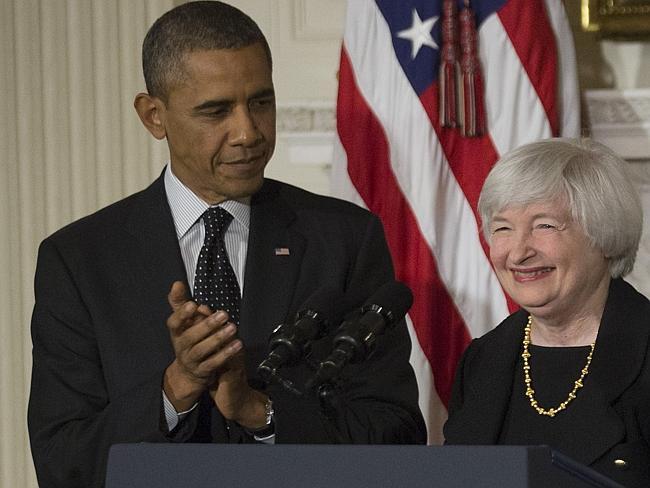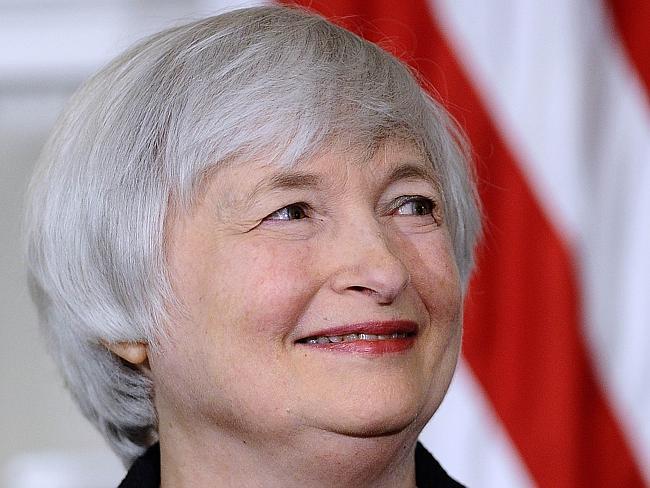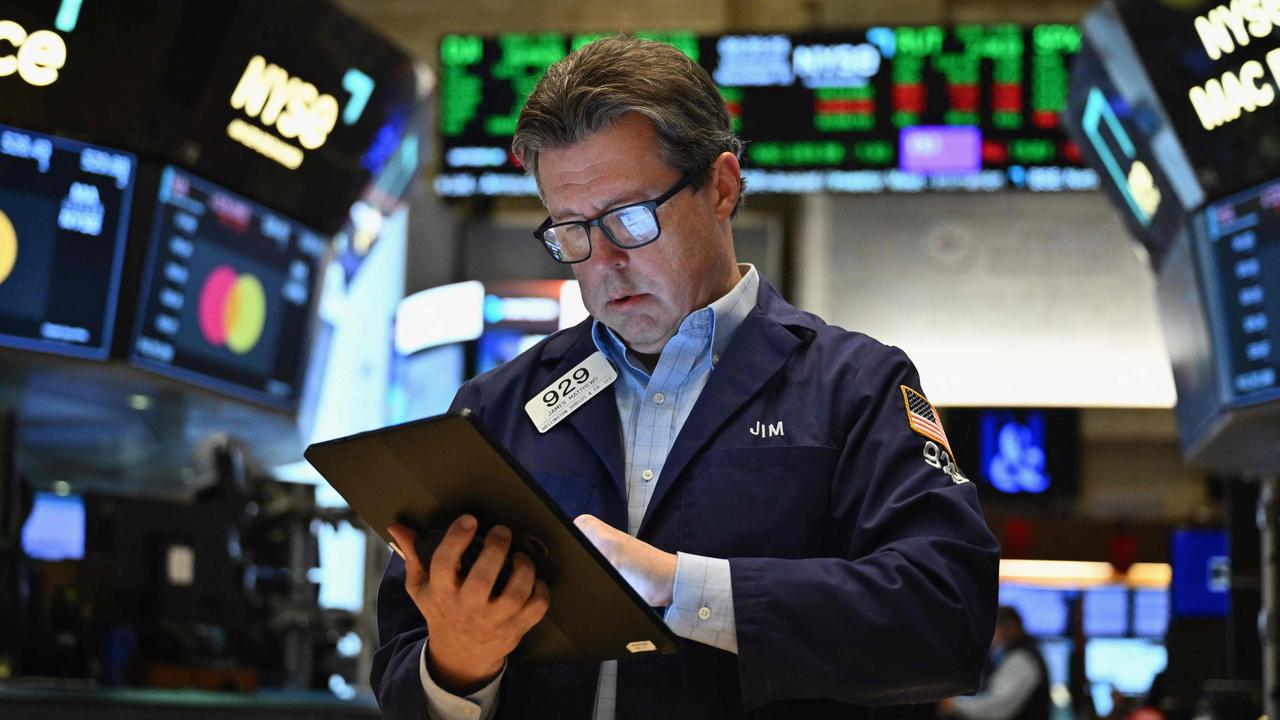Meet the world's most powerful woman, Janet Yellen
JANET Yellen is the first woman to ever chair the US Federal Reserve, which sets America's interest rates - and financial markets will be listening.
Banking
Don't miss out on the headlines from Banking. Followed categories will be added to My News.
IT is not an uncommon sight to see immaculately coiffed wives flanking male candidates at political rallies.
Similarly, we expect to see grey-haired men presiding over our economic institutions.
And so it was a curious thing to watch the diminuitive Janet Yellen, confirmed this week by the US Senate as the next chair of the US Federal Reserve, take centre stage at a committee hearing on Capitol Hill last November flanked by her husband, the grey haired and bespeckled - not to mention Nobel prize winning- economist George Akerlof.
This leading economic man from central casting was there merely in a supportive role, a right hand man to his wife: the most powerful woman in the world.
It's a role reversal financial markets and everyone else better get used to, and quick.
The first ever female appointed to chair the hundred year old institution which sets interest rates in the United States will take the helm next month, making her the most powerful woman alive today, on some estimates.

"If she's not number one, then she's certainly number two," says Westpac senior economist, Huw McKay who thinks it's a close call with German Chancellor Angela Merkel.
"I think you can make the case that Angela Merkel is pretty important. But I think that the US Federal Reserve chair - particularly in the political environment in the US where Congress is absolutely gridlocked - is really the dominant force."
Dressed in black, adorned only by a gold necklace to offset her trademark silver cropped hair, Dr Yellen used last November's hearing to stress the human impacts of the biggest recession in America since the Great Depression.
Soaring joblessness, tumbling house prices and shrinking retirement nest eggs have taken a human toll.
In her measured, methodical, but unmistakably Brooklyn accent, Yellen promised: "I'll never forget my roots".

Janet Louise Yellen was born in 1946 in the working class district of Brooklyn, New York, the daughter of a local Jewish physician.
She went on to earn an economics pedigree of the highest order. An economics degree from Brown University. A PhD from Yale. An assistant professorship at Harvard University. Professor emeritus at the University of California, Berkeley.
She served as chair of President Bill Clinton's board of economic advisers before being appointed as President herself of the San Francisco Federal Reserve in 2004.
The US Federal Reserve system has 12 regional reserve banks, and one central committee for setting national interest rates, of which Yellen has been vice chair to current chair Ben Bernanke since 2010.
She was one of the first economists to raise alarm about the brewing subprime mortgage crisis that would a year later bring the global financial system to the brink of destruction. In June 2007 she warned: ''I still feel the presence of a 600-pound gorilla in the room and that is the housing sector."

Justin Wolfers, an Australian born economist based in Washington DC, recalled in an article for Bloomberg last year working with Yellen at the San Francisco Fed when she was president.
He remembers a "remarkably humble" woman, but also a "tough and natural leader". "Typically, Fed presidents remain safely cloistered in the executive offices, away from the great unwashed," Dr Wolfers wrote. "Not Janet. It wasn't unusual to see her in the cafeteria, tray in hand, looking for a table of friendly economists to join."
This was, in fact, how she met George Ackerlof in 1977 when they both worked at the US Federal Reserve in Washington DC. "We liked each other immediately and decided to get married," Akerlof would later recall. They wed the following June and have a 32 year old son - an economist, of course.
So what will Yellen's appointment mean for the Australian economy?
"She's the most powerful economic policy maker in terms of financial markets and what happens on global financial markets has a big effect on Australia," explains HSBC's chief economist, Paul Bloxham.
With US interests already at zero, the Fed is currently printing billions of dollars each month to pump prime the US economy - a process known as "quantitative easing". The job now falls to Yellen to turn of the taps.
But Bloxham says financial markets see Yellen as a "dove" - meaning she is more concerned by high joblessness than the prospect of inflation - who will take care not to choke off the US economic recovery too soon.

"I think from an Australian perspective, she's widely perceived as being fairly dovish, that would imply that there is more likelihood quantitative easing will go on for a bit longer. In broad terms, that means potentially a bit more Aussie dollar strength."
A higher dollar could weigh on the Australian economy, but Bloxham expects the Reserve Bank is done with cutting interest rates.
Westpac's Huw McKay is himself more dovish than Bloxham on our economy.
"We think there are still quite a few arguments for the Reserve Bank to be cautious. We still think there's going to be a couple of rate cuts out there," he says.
According to McKay, Yellen's more cautious approach to turning of the money taps means interest rates around the world are going to be lower for longer.
He expects the Aussie dollar to stay relatively high, back up to US 92 cents, in the coming months, before easing to US88 cents by the end of the year as Yellen inevitably does begin winding back stimulus in the US.
Financial markets have entered the New Year with a sense of optimism.
Yellen's job will be to ensure sprits remain high, while also removing the monetary punch bowl from the party. Much is riding on her ability not to surprise markets with any unexpected moves.
This will not be a problem, says Wolfers: "I expect policy statements issued in Yellen's Brooklyn accent to be clear and direct, as she says precisely what she means."
When the world's most powerful woman speaks, you can bet financial markets will be listening.


